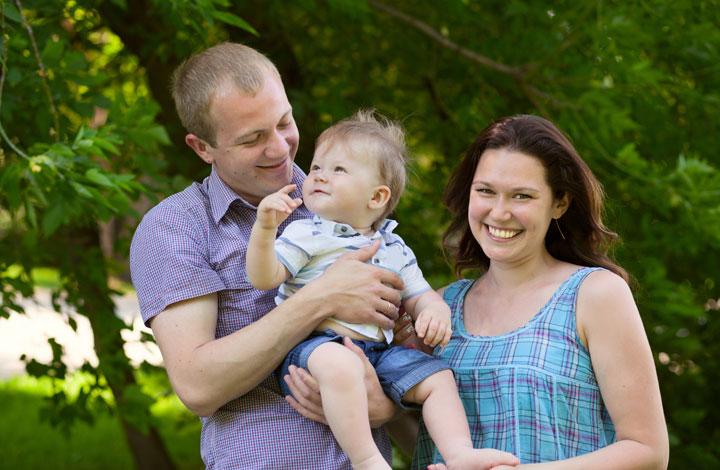Starting a family is a milestone in many people's lives. It can also be a stressful time and many parents experience mental ill health. Mental ill health of parents can have a negative impact on the development of their children. But this is not always the case.
- Approximately 68% of women and 57% of men with mental health problems are parents.1
- The most common mental health problems experienced during pregnancy and after birth are anxiety, depression and post-traumatic stress disorder (PTSD).2
- Women experiencing maternal mental health problems:3
- Postpartum psychosis: 2 per 1,000
- Serious mental ill health: 2 per 1,000
- Severe depressive illness: 30 per 1,000
- Mild-moderate depressive illness and anxiety states: 100-150 per 1,000
- PTSD: 30 per 1,000
- Adjustment disorders and distress: 150-300 per 1,000
The effect of poor parental mental health on children
Poor maternal and paternal mental health has been associated with poor outcomes in children but not all children of parents who have mental health problems are at risk. A number of biological dispositions, sociocultural contexts and psychological processes are likely to interact and can serve as protective factors or risk factors for both parents' and children's mental health.
- A 2013/2014 study found that 38% of first-time fathers are concerned about their mental health.4
- Around 10% of all new fathers worldwide experience postnatal depression.5
- Perinatal mental health problems carry a total economic and social long-term cost to society of about £8.1 billion for each one-year cohort of births in the UK.6
Find out more about maternal mental health on the Maternal Mental Health Alliance website
Our 2016 study 'The Fundamental Facts about Mental Health' follows a comprehensive summary of mental health research, providing a unique handbook of key facts and figures, covering all key areas of mental health.
Learn moreParenting: A-Z Topics
Find out more about what affects our mental health with our A-Z Topics.
Find out more
References
- Royal College of Psychiatrists. (2016). Parental mental illness: The impact on children and adolescents. Information for parents, carers and anyone who works with young people. Retreived from rcpsych.ac.uk/healthadvice/parentsandyouthinfo/parentscarers/parentalmentalillness.aspx
- Ayers, S., & Shakespeare, J. (2015). Should perinatal mental health be everyone's business? Primary Health Care Research and Development, 16(4), 323-325.
- Joint Commissioning Panel for Mental Health. (2012). Guidance for Commissioners of Perinatal Mental Health Services. Retreived from jcpmh.info/wp-content/uploads/jcpmh-perinatal-guide.pdf [accessed 13/07/16].
- National Childbirth Trust. (2015). Dads in distress: Many new fathers are worried about their mental health. Retrieved from nct.org.uk/press-release/dads-distress-many-new-fathers-are-worried-about-their-mental-health [accessed 14/09/16].
- Paulson, J.F., & Bazemore, S.D. (2010). Prenatal and postpartum depression in fathers and its association with maternal depression: A meta-analysis, The Journal of the American Medical Association, 303(19), 1961-1969.
- Bauer, A., Parsonage, M., Knapp, M., Iemmi, V., & Adelaja, B. (2014). The costs of perinatal mental health problems. Retrieved from everyonesbusiness.org.uk/wp-content/uploads/2014/12/Embargoed-20th-Oct-Summary-of-Economic-Report-costs-of-Perinatal-Mental-Health-problems.pdf